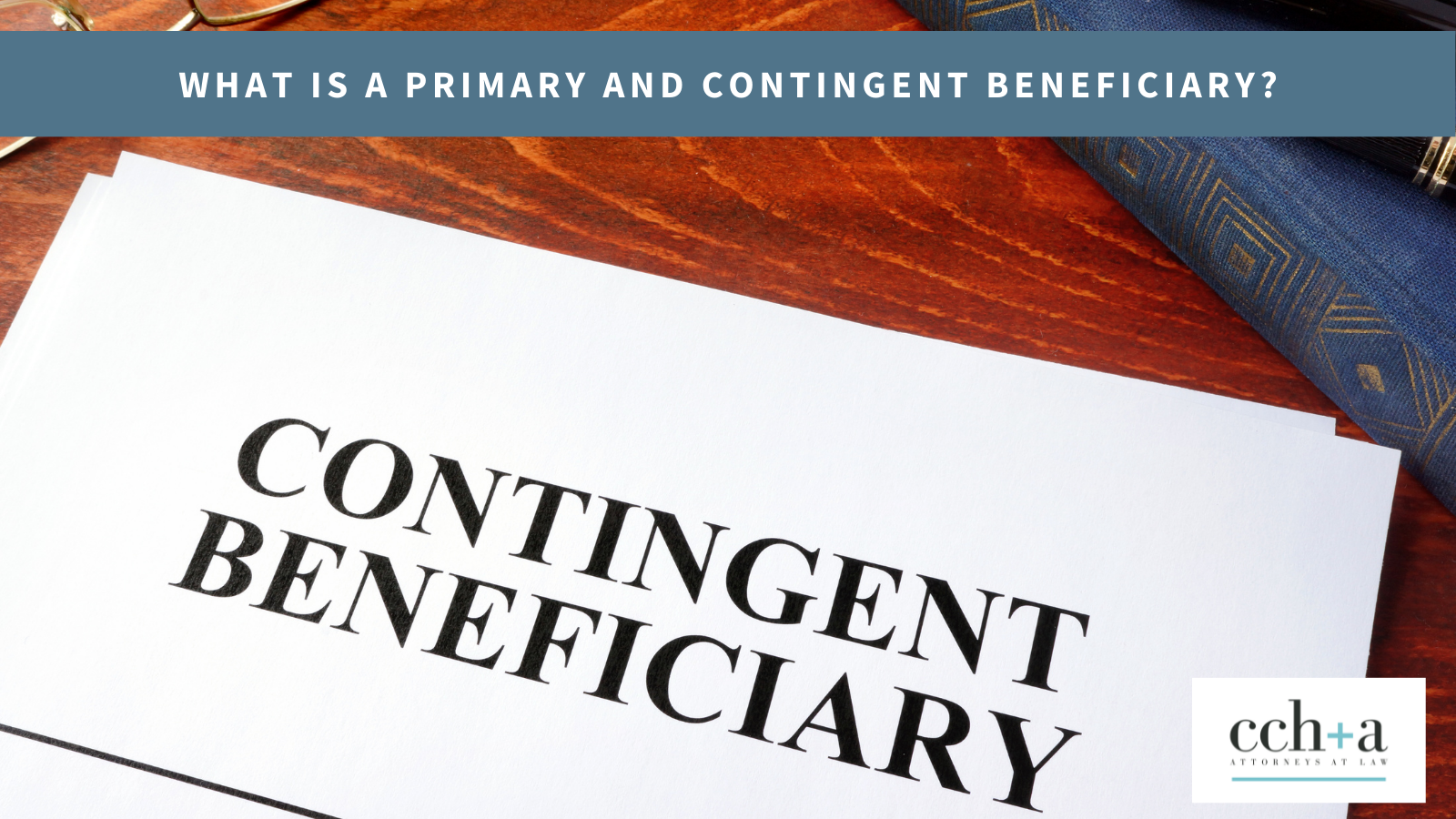
At some point during the estate planning process, you may have heard the terms primary beneficiary and contingent beneficiary. You may have even seen them when filling out life insurance or retirement account documents. Let’s take a look at the difference between primary and contingent beneficiaries, explore examples, and explain why it matters to you.

What’s the Difference Between Primary and Contingent Beneficiaries?
Before we delve into the difference between the two types of beneficiaries, we need to define a beneficiary. A beneficiary is a person or entity you designate to receive benefits. Common examples of benefits are assets from an estate, life insurance proceeds, retirement accounts, and annuities. By designating beneficiaries, you ensure your assets go to the intended person or entity after your death.
Now that we understand what a beneficiary is, we can explore the two different types of beneficiaries. Simply stated, a primary beneficiary is the first person entitled to receive the benefits, and a contingent beneficiary is next in line.
Primary Beneficiary
As the name insinuates, primary beneficiaries have the first right to claim the benefits. You can name multiple primary beneficiaries and decide how the benefits will be split between them. For example, if you have two children, you can designate both as the primary beneficiaries of your life insurance policy. At your death, the children will receive the benefits according to the percentages you choose.
Contingent Beneficiary
A contingent beneficiary can only receive benefits if all primary beneficiaries are deceased, unable to be located, or refuse to accept the benefits.
For example, if you have two children and name your daughter as the primary beneficiary and your son as the contingent beneficiary in your will, only your daughter will receive the assets when you die. Your son will receive nothing. However, if your daughter predeceases you, refuses to take the assets, or cannot be found, your son will then get the assets.
Beneficiary Designation vs. Will
Another point of confusion can be understanding the difference between a beneficiary designation and a beneficiary in a will.
A beneficiary designation is where you name a beneficiary to take a specific asset, proceed, or benefit at your death. This is an automatic transfer of benefits that avoids probate. It typically applies to assets like life insurance policies or retirement benefits.
A will, on the other hand, is a set of instructions regarding all assets in your estate. In your will, you can name beneficiaries, but there is no immediate transfer of assets at your death. Rather, your estate may have to go through probate before any distribution of assets to the named beneficiaries.
Typically, a beneficiary designation overrides the terms of a will. This means that if your will says one thing, but your beneficiary designation conflicts, the beneficiary designation will prevail.
Example of Primary and Contingent Beneficiaries
An example of primary and contingent beneficiaries is where a life insurance policyholder names his or her spouse or domestic partner as the primary beneficiary and their children as the contingent beneficiaries. In this scenario, the spouse is provided for if the policyholder dies. The children are also financially protected if both the parents pass away.
Why Primary and Contingent Beneficiary Designations Matter
Naming primary and contingent beneficiaries makes the payout of benefits much quicker. For example, say you name your spouse or domestic partner as the primary beneficiary of your life insurance policy but do not name anyone as the contingent beneficiary. At your death, if your spouse or partner is still alive, the proceeds will go to him or her. However, if your spouse or partner is not alive at the time of your death, the proceeds will be paid to your estate. If your estate needs to go through the probate process, it may take longer for the estate to distribute the life insurance proceeds.
By designating primary and contingent beneficiaries, you are planning for “what if” scenarios. You are doing your best to ensure that your assets go to the people or entities you desire.
Contact Church Church Hittle + Antrim With Estate Planning Questions
At Church Church Hittle + Antrim, we understand that estate planning can seem overwhelming. We are here to answer your questions, simplify concepts, and help you feel confident in your decisions for your future and your family.
From complex, multi-generational trusts to business succession planning to gifting strategies, we provide customized, comprehensive estate planning services to all our clients. Feel free to contact us with any questions or start planning today.


